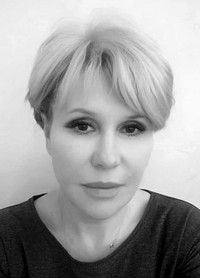Model of physical training for future specialists of thecustoms service
Keywords:
physical training, basic adaptive attitudes, customs service, students, methodology.Abstract
Objective of the study was to substantiate the model of physical training of future customs service specialists using elements of fitness programs with an emphasis on the development of professionally important physical qualities, increasing mental performance and psycho-emotional state.
Methods and structure of the study. As part of solving the research problems throughout the entire period of study (from 2016 to 2021), an analysis was made of the dynamics of the level of physical fitness, mental performance and psycho-
emotional state of 50 students of the Bobkov Saint Petersburg branch of Russian Customs Academy.
Results and conclusions. As a result of the experiment, a model of physical training of future specialists of the Federal Customs Service of the Russian Federation was developed and tested. The model combines the organizational and pedagogical conditions for its effective functioning, the levels of adaptation to professional activities and directly the means of physical culture, chosen taking into account the professiogram for classes with students of the experimental group. The effectiveness of the developed model is confirmed not only by the data on the increase in the level of physical fitness and the level of psycho-
emotional state, but also by the percentage of graduates who remained in the profession.
References
Bakaev V.V., Tokareva A.V. Struktura pedagogicheskoj modeli adaptacii budushchih specialistov po zashchite v chrezvychajnyh situaciyah k professionalnoj deyatelnosti [The structure of the pedagogical model of adaptation of future specialists in emergency situations protection to professional activities]. Novaya nauka: Teoreticheskij i prakticheskij vzglyad. 2016. No. 8 (88). pp. 53-55.
Bakeshin K.P. Naglyadno-obraznoe modelirovanie kak metod obucheniya studentov dvigatelnym sportivnym navykam [Visual-figurative modeling as a method of teaching students motor sports skills]. Teoriya i praktika fiz. kultury. 2020. No. 12. pp. 49-51.
Bolotin A.E., Tokareva A.V. Organizacionno-pedagogicheskie usloviya, neobhodimye dlya effektivnogo formirovaniya lichnostnyh kachestv u specialistov po zashchite v chrezvychajnyh situaciyah na etape adaptacii k professionalnoj deyatelnosti v vuze [Organizational and pedagogical conditions necessary for the effective formation of personal qualities in emergency protection specialists at the stage of adaptation to professional activity at the university]. Zdorove – osnova chelovecheskogo potenciala: problemy i puti ih resheniya. 2013. Vol. 8. No. 1. pp. 166-167.
Volsky V.V., Bakeshin K.P., Baturin A.E. Fizicheskaya podgotovka sotrudnikov federalnoj sluzhby ispolneniya nakazanij na etape reformirovaniya [Physical training of employees of the federal penitentiary service at the stage of reform]. Teoriya i praktika fiz. kultury. 2016. No. 7. pp. 47-49.
Lobanov Yu.Ya., Kovalenko V.N., Mironova O.V. et al. Metodika trenirovki studentov s nizkim urovnem fizicheskoj podgotovlennosti [Training methodology for students with a low level of physical fitness]. Uchenye zapiski universiteta im. P.F. Lesgafta. 2018. No. 2 (156). pp. 126-130.
Prokhorova I.V., Dzerzhinsky G.A., Dzerzhinsky S.G. Metodika fizicheskoj podgotovki budushchih specialistov tamozhennogo dela [Methods of physical training of future customs specialists]. Uchenye zapiski universiteta im. P.F. Lesgafta. 2015. No. 3 (121). pp. 113-118.
Tokareva A.V. Izmenenie rabotosposobnosti v zavisimosti ot sposoba vypolneniya obshcherazvivayushchih uprazhnenij [Changes in working capacity depending on the method of performing general developmental exercises]. Sovremennye nauchnye issledovaniya i innovacii. 2013. No. 8 (28). p. 28.
Emulzaev M.A., Panchenko I.A. Postroenie modelej fizicheskoj rekreacii: innovacionnyj vektor razvitiya [Building models of physical recreation: an innovative vector of development]. Teoriya i praktika fiz. kultury. 2019. No. 3. pp. 47-48.
Elmurzaev M.A. Sociokulturnyj potencial fizicheskoj rekreacii [Sociocultural potential of physical recreation]. Teoriya i praktika fiz. kultury. 2014. No. 2. pp. 52-54.

Additional Files
Published
Versions
- 07-04-2022 (3)
- 05-04-2022 (2)
- 05-04-2022 (1)

